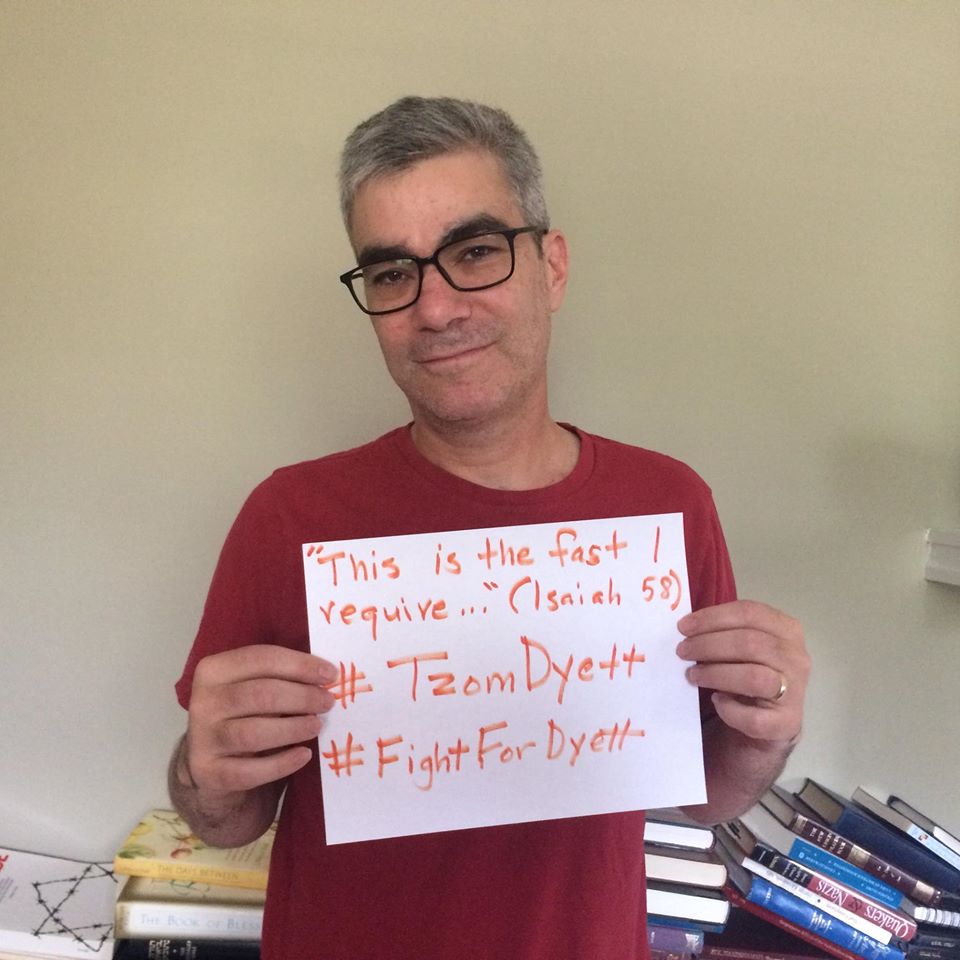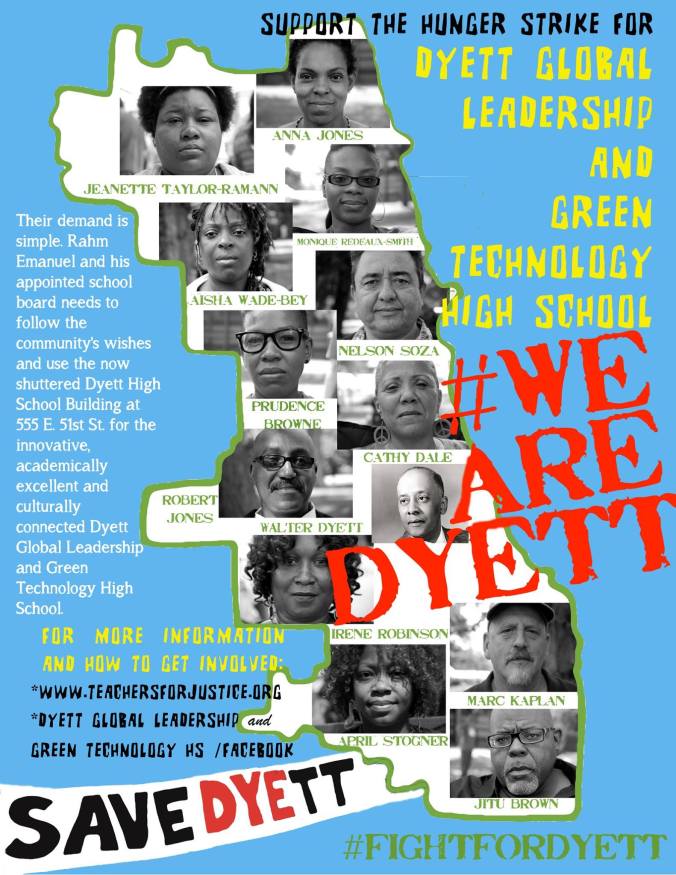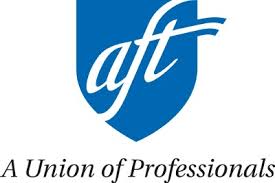#Tzom Dyett.
-By Brant Rosen. Brant is the Rabbi of the newly formed social justice Jewish Congregation Tzedek in Chicago.
Since Monday, twelve Bronzeville parents, grandparents, and community members have been on hunger strike to save Dyett High School, the last open enrollment school the historic Bronzeville Community.
The hunger strikers have called for a fast day of solidarity tomorrow, Tuesday, August 25 and we encourage Tzedek Chicago members to join with people of conscience across Chicago in this action.
I’m particularly mindful that In Jewish tradition, a communal fast (“ta’anit” or “tzom”) is held in times of crisis, both as an expression of mourning and as a call to repentance. As we approach the high holidays, we recall the Yom Kippur haftarah in which Isaiah calls for a righteous fast without oppression.
In addition to fasting, here are some suggestions on how you can show your solidarity with the Dyett hunger strikers:
Take a photo of yourself and share on Facebook/Twitter/Instagram to publicly show your commitment to the fast.
The photo can include a expression of solidarity. Write “This is the fast I desire” (Isaiah 58), with a statement of your solidarity. Some examples might include:
“Community members have been on hunger strike for 8 days”
“111 Chicago Public schools closed since 2001”
“There are no more community high schools in Washington Park”
“Because Education is a Human Right”
“Because Children should come before profit”
“Because CPS Should be accountable to communities, not corporations”
“111 Chicago Public schools closed since 2001”
“There are no more community high schools in Washington Park”
“Because Education is a Human Right”
“Because Children should come before profit”
“Because CPS Should be accountable to communities, not corporations”
Share Ellen Gradman’s graphic: #FightForDyett
– Ellen Gradman is a Chicago artist and educator. Please share her #FightForDyett graphic on your Facebook and other social media sites.
AFT: edTPA has no respect for teacher professionalism.The American Federation of Teachers adopted the following resolution on edTPA in 2014.
WHEREAS, for more than two decades P-12 public schools, teachers and teacher education programs have been blamed for the purported crisis in public education. Also, No Child Left Behind and Race to the Top legislation have responded to the assumed failures of teachers, public schools and teacher preparation programs by instituting value-added accountability systems that rely on high-stakes testing measures to track the impact teachers and those who prepare them have on student learning; and
WHEREAS, the current use of these standardized tests narrows the curriculum, fails to accurately assess student learning and deprofessionalizes teachers. Accordingly, teachers and parents as well as some of their unions and organizations have called for more authentic assessments, greater autonomy for teachers, more resources, smaller class sizes and the withdrawal of for-profit corporate intrusion into public education; and
WHEREAS, federal and state mandates placed on teacher education programs have received less critical attention. Teacher Performance Assessment protocols and exams are now being imposed by state governments (e.g., “edTPA”), on schools of education, and on teacher education faculty. Originating from Stanford and designed by teacher educators, much of the content of edTPA contains important components of good teaching and some of the component evaluative methods represent good practices, such as the use of portfolios and multidimensional assessments. edTPA, however, “is designed to be educative and predictive of effective teaching and student learning.” (Stanford Center for Assessment, Learning and Equity, 2012); and
WHEREAS, the central, “predictive claim of edTPA must be placed within the dominant historical context of the testing regime that pervades federal and state assessment policies. As an assessment measure, edTPA is to be linked to existent student success measures (high-stakes testing) that are, in turn, used to evaluate teachers. In these circumstances, what edTPA will predict are successful outcomes valued by federal and state policymakers, and not necessarily successful teachers; and
WHEREAS, when edTPA was introduced by the New York State Department of Education, the New York State United Teachers (NYSUT) passed the following resolution on edTPA at the 2014 representative assembly:
- Resolved, NYSUT rejects the notion that edTPA constitutes an appropriate assessment of teacher candidate performance, and takes the position that the New York state regents’ rushed implementation will undermine the preparation of teacher candidates in New York state; and
- Resolved, the New York State United Teachers calls on the regents of the state of New York to stop the implementation of edTPA and engage in discussions with NYSUT to seek agreement on certification and assessment policies and implementation practices that will best educate and prepare students for the teaching profession; and
WHEREAS, there was an outpouring of criticism of edTPA in concept and implementation by teacher educators, students and parents across New York AFT: edTPA has no respect for teacher professionalism.




